Tom Shadyac – 1 Am
Original price was: $29.90.$25.00Current price is: $25.00.
Salepage link: At HERE. Archive:
Tom Shadyac – 1 Am
Get Tom Shadyac – 1 Am at the CourseAvai
What if the solution to the world’s problems was right in front of us all along?
Tom Shadyac (actor, director)
failed to fetch data:
was a high successful director of comedy films (such as ) when he had a bicycle accident. His recuperation from this accident was prolonged and miserable, triggering considerable soul-searching. The most valuable part of this movie is this personal story of his and his search for meaning. See also: .
Even before the accident, it seems that Tom was already suffering from the curse of getting what he wanted. He tells of standing in the front hall of his new mansion after the movers had just left, and being puzzled that we wasn’t any happier, even though he now had the material wealth that he had been striving for. See , .
The movie is constructed from interviews, with the story advancing mainly by head shots interspersed with voiceovers on graphics and stock footage that illustrate the point. There is little narration. Tom Shadyac speaks mainly about his own recovery and search for meaning.
The sequence conveys the argument that what we have been told is wrong, and that we are all connected, both to other people and to the natural world, so we all need to get along, and to act together to solve the world’s problems of pollution, poverty and injustice.
We need to do this not just because it’s the right thing to do, but because our connection to everyone means that their suffering is our suffering. This is , and some of the points made nibble around the edges of important insights, such as that we have evolved to be cooperative (as well as competitive.)
Quantum Mysticism
Unfortunately, in the end Tom is seduced by the of . We agree that science is coming together with traditional spiritual teachings, but the source of our actual interconnection does not come from physics. Instead, it comes from our nature as social and , as studied in anthropology and social psychology.
Although human behavior does ultimately derive from physics, the actual workings of the mind are by design highly divorced from physics by layers of chemistry, cellular biology, neuroanatomy, and as-yet-undiscovered sciences of mental architecture and operation (see .)
We see as inconsistent with our . It is an appealing idea that quantum physics somehow validates the mystic insight that all is one—the has resonance, but it is based on an analogy, not a causal connection. The movie presents this direct mind/physics connection as scientific fact, but it isn’t. See .
Sources
David Suzuki
Science writer and presenter shows a mystical feeling of life’s interconnection by example of our shared atmosphere. Every breath we take contains about 10^19 atoms, most of which have been circulating in the atmosphere ever since there was an atmosphere. This means that every breath we take contains tens of thousands of Argon atoms that were also breathed by Aristotle, Gandhi, Hitler, or anyone else who ever lived. Of course, they were also breathed by dinosaurs and farted out by fleas.
In his writing, Suzuki uses this to point out our mutual dependence on this shared atmosphere, giving it a sacred aspect, and making it all the more incomprehensible that we would foul the air with our pollution.
This is a reasonable use of a scientific fact to advance an environmental argument, but in the film this is edited in a way that emphasizes the vague connection created between individuals, showing that our interconnection is . It is true that we are mutually dependent on the atmosphere and that air pollution is not in our long-term best interests, but our shared encounters with argon atoms don’t create any actual connection.
We are indeed physically and chemically connected through our shared environment, and this is the fundamental point of environmental awareness.
But our real connection to Aristotle, Gandhi, and Hitler comes from what they said and what they did, not the argon they breathed. Argon breathing is a piece of , where there is no effect unless you know the story. The whole reason why argon was chosen for the illustration is that it is an inert gas, passing in and out of our lungs with no change to us or the atom. If there were no argon at all in the air you would never notice the difference. We would still have Aristotle, Gandhi, and Hitler.
Desmond Tutu, Howard Zinn, Noam Chomsky
Religious/political leader and leftist intellectuals and say mostly sensible things about political change, but the film manages to obscure the socially constructed nature of politics by implying that the will for political change is the same as the all-pervasive interconnection of . This is exactly backwards. We are truly interconnected because we socially interact with each other, and have evolved to do so. This human nature arose by the process of genetic/cultural coevolution (see ).
Get Tom Shadyac – 1 Am at the CourseAvai
Dacher Keltner
Positive psychologist speaks about happiness research and ideas related to humans being adapted to cooperation. These are important parts of the foundation of our story, and these relatively new results deserve wider popularization.
Green and New-age sources
The other people interviewed fall outside of the scientific mainstream. Most of them are speakers and authors of popular books. There is considerable overlap, but , , and are best known for their new-age physics, while green entrepreneur , environmentalist and artist are better known for their environmental views.
Thom Hartmann
Because of his lucid presentation of new-age views, environmentalist and progressive political commentator stands out as the speaker most clearly opposed to scientific understanding. He is heavily used to provide the overall narrative
In an early segment, he argues that living things are somehow fundamentally different from the inanimate matter studied in physics, implying science is inadequate to understand human experience (see .) Living things are not machines because a machine (your car) can be taken apart and put back together, while an animal (your dog) can’t. This appealing argument neglects facts about life and technology that both blur this boundary and explain the perceived difference.
We are to taking simple life forms life apart and putting them back together. Also, if a thing is not designed to be taken apart, then it may be very difficult to do so without damage. Life is to be put together (see) but not to be taken apart. This is also true of many common manufactured objects such as cellphones. Consider the analogy between the heart-lung machine used during heart transplants (see ) and used in construction.
Hartman also argues that we are all connected, not individuals, that we are evolved to cooperate, not to compete, and so on. For example, he cites work such as to say that democracy is natural and kings aren’t. Of course, consensus decision making is not the same as democracy (which still involves leaders). Yes, having leaders with powers of command is not seen outside of humans.
True , with division of labor, is a uniquely human invention, and is a large part of the reason why we cooperate so well. In each of his points, Hartman incorporates some valid science, but it is no more correct to say that humans are cooperative (not competitive) than to say that humans are competitive (not cooperative.)
Humans have evolved to be both competitive and cooperative. More precisely, we cooperate with our in-group to survive in an environment where food and shelter are often difficult to obtain and where we compete with other groups of humans (out-groups, see ) and with non-human animals. If we don’t cooperate effectively, then our competitors can kill us directly through violence or indirectly by denying us the resources we need to survive and reproduce.
Coleman Barks
Mystic poet talks quite nicely about the heart. Although the film presents this in a very different context (see next section), such feelings are a very important part of the human condition. We all subjectively feel many emotions as sensations in the chest, and emotions do indeed affect the functioning of our . Furthermore, the suggests that visceral changes (such as our heart speeding up) may actually cause our perceptions of emotion (feelings.) See also .
Fringe Science
Rollin McCraty at the HeartMath institute confuses the subjective heart of the poet with the biologic heart of the cardiologist, arguing that the heart is the seat of the soul, and controls the brain.
The heart produces by far the body’s most powerful rhythmic electromagnetic field, which can be detected several feet away by sensitive instruments. [true] Research shows our heart’s field changes distinctly as we experience different emotions.
[at least partly true] It is registered in people’s brains around us and apparently is capable of affecting cells, water and DNA studied in vitro. Growing evidence also suggests energetic interactions involving the heart may underlie intuition and important aspects of human consciousness. [This rest is highly speculative]
McCraty also demonstrates for the camera how a blob of yoghurt (with live bacteria) can sense Shadyac’s feelings, as shown by a fluttering needle on a meter. This connection is claimed to be due to a special affinity between living things.
Shadyac also interviews , a . In appearance, parapsychological researchers do what scientists do, conducting experiments and analyzing data quantitatively. Experiments test things such as whether subjects can guess cards or somehow mentally influence random number generators. These results are then analyzed to see if the results are (unlikely to have arisen by chance alone.)
The assumption is that such a non-chance result proves that there is something more than physics as we know it, but critics argue more mundane explanations such as incorrect use of statistical analysis and occasional falsification by researchers or cheating by subjects are sufficient to explain the inconsistent and generally rather weak effects that have been found.
Parapsychology is definitely evidence that is telling us something about the human condition, but it isn’t clear whether it is telling us about physics (as the proponents claim) or about human belief. Parapsychologists complain that they have followed the , so their results should be accepted. That parapsychology has remained at the fringes of science since its origin over 80 years ago shows that more than puzzling results are necessary for scientific acceptance.
In itself, a new odd result may stimulate a flurry of research to understand the causes, but if results remain difficult to reproduce, then opportunistic scientific attention turns elsewhere—there is never a shortage of puzzles. In order to sustain interest in a topic without any unambiguous results it is necessary to have a plausible about how this result is a consequence of accepted science (a scientific theory.) The parapsychologist’s theory of something more fails to make that connection other than by a vague appeal to . See also .
Get Tom Shadyac – 1 Am at the CourseAvai
Conclusion
We applaud Tom’s thoughtful choice to devote his energies to making a more meaningful social contribution, and his decision to abandon material success as his primary life goal (see ). We also agree that American culture emphasizes individualism and competition to such a degree that it becomes harmful to happiness, and we are glad that he has found meaning in life and a sense of connection.
Tom Shadyac’s own voice speaks mainly about his personal experience, and this is indeed an engaging and heartwarming story. Roger Ebert said that the “film is often absurd and never less than giddy with uplift, but that’s not to say it’s bad. I watched with an incredulous delight, and at the end, I liked Tom Shadyac quite a lot.” However, the construction of this theme on a foundation of fringe science means that we can at best consider this film .
It is certainly worthwhile constructing a story based on science that gives a positive view of human nature and possibilities-such a story is the is the of this Wiki. Because they are based on sound science, we find works such as and to be much better basis for this project.
Here's an overview of the prominent keywords and a list of famous authors:
Business and Sales: Explore business strategies, sales skills, entrepreneurship, and brand-building from authors like Joe Wicks, Jillian Michaels, and Tony Horton.
Sports and Fitness: Enhance athleticism, improve health and fitness with guidance from experts like Shaun T, Kayla Itsines, and Yoga with Adriene.
Personal Development: Develop communication skills, time management, creative thinking, and enhance self-awareness from authors like Gretchen Rubin, Simon Sinek, and Marie Kondo.
Technology and Coding: Learn about artificial intelligence, data analytics, programming, and blockchain technology from thought leaders like Neil deGrasse Tyson, Amy Cuddy, and Malcolm Gladwell.
Lifestyle and Wellness: Discover courses on holistic health, yoga, and healthy living from authors like Elizabeth Gilbert, Bill Nye, and Tracy Anderson.
Art and Creativity: Explore the world of art, creativity, and painting with guidance from renowned artists like Bob Ross and others.
All the courses on WSOlib are led by top authors and experts in their respective fields. Rest assured that the knowledge and skills you acquire are reliable and highly applicable.
Specification: Tom Shadyac – 1 Am
|
User Reviews
Only logged in customers who have purchased this product may leave a review.

Original price was: $29.90.$25.00Current price is: $25.00.

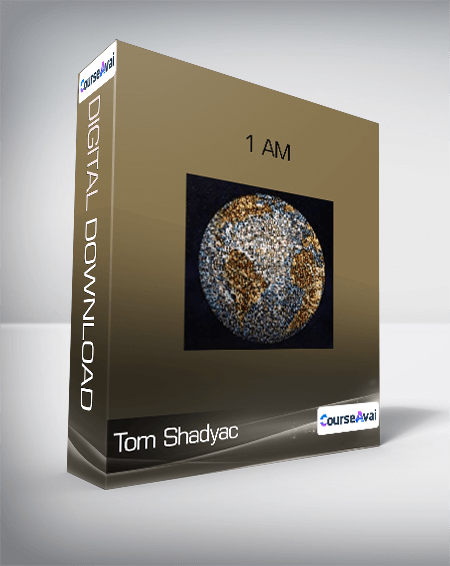



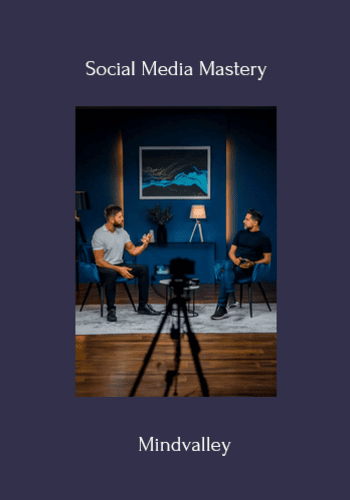
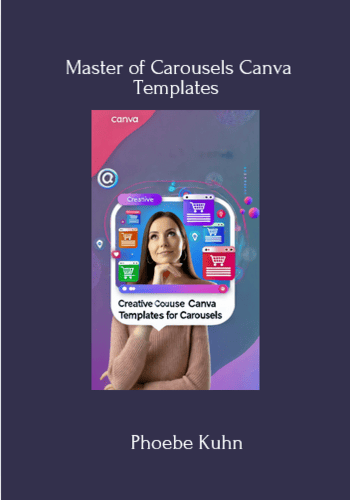
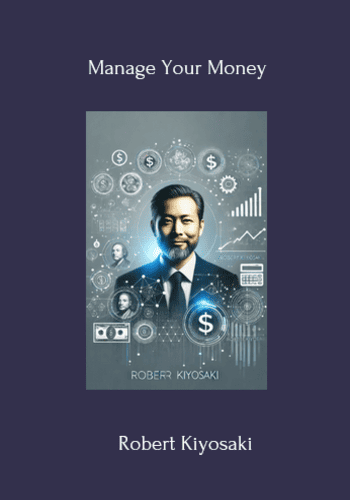
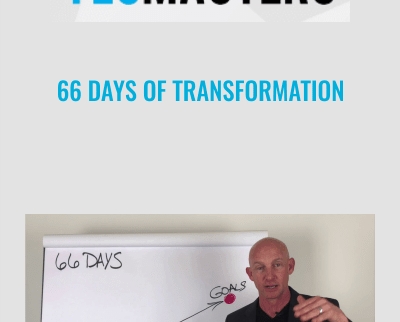

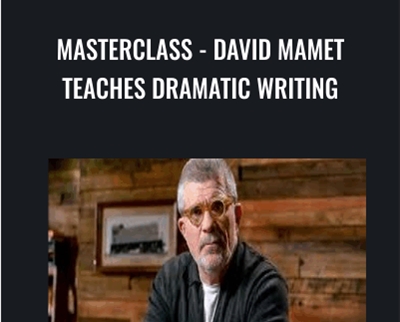


There are no reviews yet.